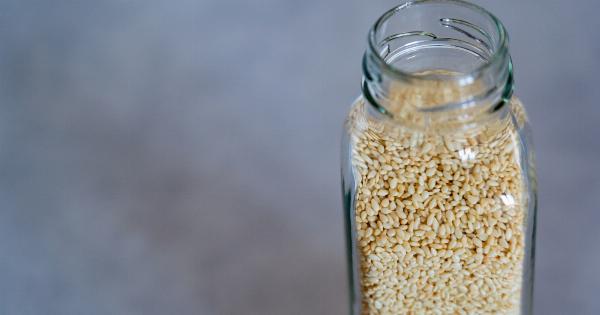Dieting is a complex topic with many myths and misconceptions. In today’s society, we are constantly bombarded with information about fad diets and weight loss programs that make claims to help us lose weight quickly and easily.
However, many of these claims are simply not true and can even be harmful to our health. In this article, we will explore some of the most common dietary myths and what the truth really is.
Myth #1: Carbs are bad for you
One of the biggest dietary myths is that carbs are bad for you and should be avoided.
While it is true that many carbohydrates, such as those found in sugary sodas and processed foods, can lead to weight gain and other health problems, there are also many healthy carbs that are essential for our bodies.
Whole grains, fruits, and vegetables are all examples of healthy carbohydrates that provide our bodies with the energy and nutrients we need to function properly.
In fact, these healthy carb sources can actually help us lose weight and improve our overall health.
Myth #2: Fat is bad for you
In recent years, there has been a shift in thinking about fat. In the past, it was thought that all fat was bad for you and should be avoided. However, we now know that this is not true.
Like carbs, there are healthy and unhealthy fats. Trans fats, for example, are unhealthy and should be avoided at all costs. However, healthy fats found in foods like nuts, avocados, and salmon can actually be beneficial for our health.
Healthy fats can help lower cholesterol levels and reduce the risk of heart disease. They also help us feel full and satisfied, which can help us eat less and lose weight.
Myth #3: Detox diets are necessary
Detox diets have become increasingly popular in recent years, with many people turning to them as a way to cleanse their bodies of toxins and lose weight. However, there is no scientific evidence to support these claims.
Our bodies are designed to detoxify naturally. Our liver, kidneys, and digestive system are all responsible for removing toxins from our bodies. There is no need for special detox diets or cleanses to accomplish this.
In fact, many of these diets can be harmful and lead to nutrient deficiencies and other health problems.
Myth #4: Skipping meals will help you lose weight
Many people believe that skipping meals, such as breakfast, is a good way to lose weight. However, this is a myth. Skipping meals can actually lead to weight gain and other health problems.
When we skip meals, our body goes into starvation mode and starts storing fat as a way to conserve energy. This can lead to weight gain over time.
Additionally, skipping meals can cause us to overeat later in the day, as we try to make up for the missed calories.
Myth #5: Eating late at night will make you gain weight
Another common myth is that eating late at night will make you gain weight. However, this is not entirely true. While it is important to be mindful of our eating habits, the time of day we eat is not necessarily the problem.
What matters more is what we are eating and how much we are eating. If we are filling up on junk food and overeating, then it doesn’t matter if we eat in the morning or late at night, we will still gain weight.
However, if we are mindful of our eating habits and make healthy choices, then eating late at night is not inherently bad.
Myth #6: Eating fat makes you fat
Another common dietary myth is that eating fat makes you fat. However, like carbs, not all fat is created equal.
While it is true that consuming too many calories from any source can lead to weight gain, consuming healthy fats in moderation can actually help us lose weight.
Healthy fats are filling and can help us feel satisfied after a meal, which can reduce the amount of calories we consume overall.
Myth #7: Organic foods are always healthier
Organic foods have become increasingly popular in recent years as people become more concerned with the chemicals and pesticides used in conventional farming.
While organic foods can be a healthier choice, they are not always automatically healthier than conventional foods.
Many organic foods are still high in sugar, salt, and unhealthy fats, which can contribute to weight gain and other health problems. It is important to read nutrition labels and choose organic foods that are also healthy choices.
Myth #8: Gluten-free diets are healthier for everyone
Gluten-free diets have become very popular in recent years, with many people turning to them as a way to lose weight and improve their health. However, unless you have celiac disease or gluten intolerance, there is no reason to avoid gluten.
In fact, many gluten-free foods are actually higher in calories and sugar than their gluten-containing counterparts. It is important to read nutrition labels and make healthy choices, regardless of whether a food contains gluten or not.
Myth #9: Superfoods will cure all your health problems
Superfoods, such as kale, quinoa, and acai berries, have become very trendy in recent years. Many people believe that these foods have magical properties that can cure all of their health problems. However, this is simply not true.
While these foods are healthy choices and can provide our bodies with valuable nutrients, they are not miracle cures.
It is important to eat a balanced and varied diet that includes a variety of healthy foods, rather than relying on a few trendy superfoods to provide all of our nutrition.
Myth #10: Supplements are a necessary part of a healthy diet
Many people believe that taking supplements, such as vitamins and protein powders, is a necessary part of a healthy diet. However, this is not necessarily true.
While supplements can be helpful in certain situations, they are not a replacement for a healthy and varied diet. It is always better to get our nutrients from whole foods, rather than relying on supplements to provide them.
Conclusion
There are many dietary myths and misconceptions out there, and it can be difficult to determine what is really true.
However, by being informed and aware of these myths, we can make healthy choices that will help us achieve our health and wellness goals.
Remember, a healthy diet is all about balance and moderation. Focus on eating a variety of whole foods and stay away from fad diets and quick-fix solutions that promise to help you lose weight quickly.
By making healthy choices and being mindful of our eating habits, we can improve our overall health and well-being.





























